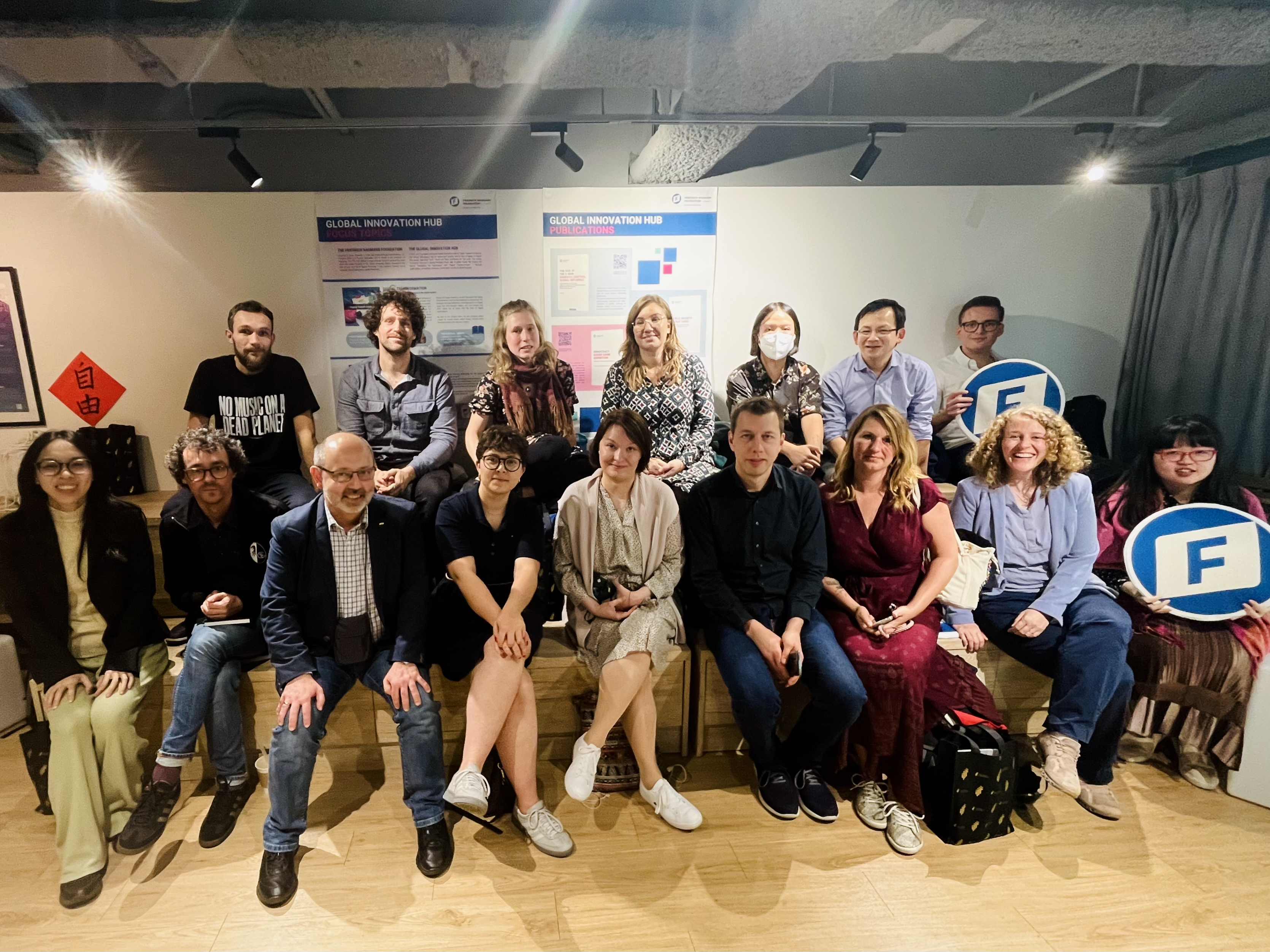Event
German journalists explore Taiwan's vibrant democracy ahead of 2024 elections

FNF Global Innovation Hub in Taipei welcomed a group of talented journalists from the Journalist Network as part of their research trip titled "Taiwan's Future – A Visit Before the Elections" in November.
This diverse group consists of 12 young professionals under the age of 40, who represent various media formats including print, radio, and online, while covering a broad spectrum of beats such as cross-strait relations, economics, culture, and renewable energy.
The Journalist Network has conducted the research trip in Taiwan for the third time, always preceding the elections.
During their trip, journalists attended campaign rallies, visited election committees, ministries, and technology facilities to gather material for their in-depth reports on the upcoming Taiwan elections, set to release in early January for the German audience.
Why Taiwan?
Taiwan, a self-ruled island claimed by China, was described by radio reporter Andre Zantow, one of the tour organizers, as a "niche" in German language journalism. In 2015, Zantow's colleague from the Journalist Network organized a trip to Taiwan because the island was underreported.
"Ten years ago, there were numerous reporters covering stories from the United States, France, and China, but only a handful in Taiwan," said Zantow. Thus, the topic is fresh and unique for the German journalism market. Moreover, the tangled history with an increasingly authoritarian China and the geopolitical tensions have piqued the curiosity of journalists.
The vibrant civil society in Taiwan also caught the journalists' attention. Zantow highlighted Taiwan's democracy and progressive policies, such as LGBTQ rights and phasing out nuclear power, as unique in the region and a focal point of their journey.
Taiwan Elections and the Impacts on the Semiconductor Supply Chain
Taiwan Semiconductor Manufacturing Co. (TSMC)'s plans for a semiconductor fab in Dresden also piqued the interest of tech-savvy and economically oriented media.
Luisa Zenker, an economic beat reporter from Sächsische Zeitung, observed that Taiwan's elections have sparked interest among German media outlets due to the potential influence on the semiconductor supply chain and industry, linked to the ruling party's relationship with China.

How Journalists View the Elections
During their visit at FNF Global Innovation Hub, members from the Journalist Network research group raised questions regarding the 2024 elections. Some journalists pointed out that the political landscape of Taiwan is no longer dominated solely by the two major parties.
Media professionals are also keenly interested in the voting behavior of different age groups and what motivates supporters. They seek to understand whether the election outcomes can be explained as a move toward reconciliation or estrangement from China.
While Taiwan's elections were often considered by foreign media and observers as referendums on cross-strait relations, domestic policies such as soaring housing prices and low wages are now shaping voters' decisions.
Some journalists have also observed that media coverage during elections frequently delves into trivial and ambiguous topics, such as candidates' personalities. "The focus of the upcoming elections is not as clear to me as in previous ones," said Zantow, who had visited Taiwan for both the 2016 and 2020 Taiwan presidential elections. He pointed out that in 2016, the Sunflower Movement dominated public discourse in Taiwan, whereas during the 2020 elections, attention shifted to the Umbrella Revolution in Hong Kong.
The journalists concluded their trip in early December, interviewing party representatives and experts in economics, foreign affairs, technology, energy, and culture. Their story will cover the country's prospects and progress, as well as explore the connections to the upcoming election results.
